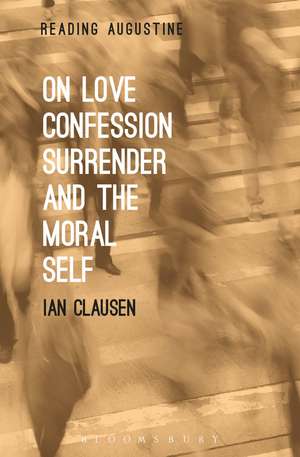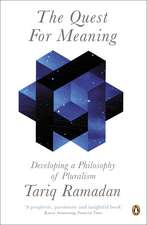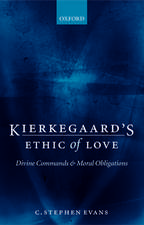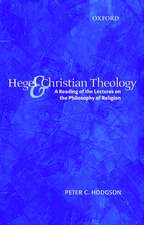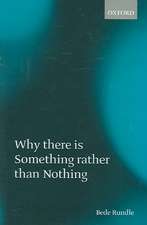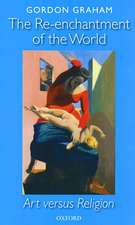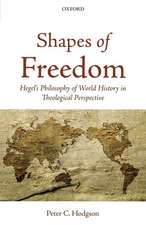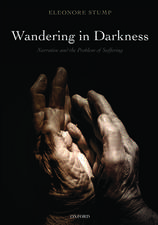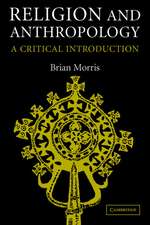On Love, Confession, Surrender and the Moral Self: Reading Augustine
Autor Dr. Ian Clausenen Limba Engleză Paperback – 29 noi 2017
| Toate formatele și edițiile | Preț | Express |
|---|---|---|
| Paperback (1) | 157.32 lei 6-8 săpt. | |
| Bloomsbury Publishing – 29 noi 2017 | 157.32 lei 6-8 săpt. | |
| Hardback (1) | 494.77 lei 6-8 săpt. | |
| Bloomsbury Publishing – 29 noi 2017 | 494.77 lei 6-8 săpt. |
Din seria Reading Augustine
- 15%
 Preț: 162.36 lei
Preț: 162.36 lei - 9%
 Preț: 150.96 lei
Preț: 150.96 lei - 14%
 Preț: 177.05 lei
Preț: 177.05 lei - 8%
 Preț: 157.75 lei
Preț: 157.75 lei - 13%
 Preț: 174.51 lei
Preț: 174.51 lei - 8%
 Preț: 151.38 lei
Preț: 151.38 lei - 8%
 Preț: 151.38 lei
Preț: 151.38 lei - 15%
 Preț: 175.53 lei
Preț: 175.53 lei - 8%
 Preț: 158.64 lei
Preț: 158.64 lei - 19%
 Preț: 169.08 lei
Preț: 169.08 lei - 14%
 Preț: 177.05 lei
Preț: 177.05 lei - 14%
 Preț: 176.44 lei
Preț: 176.44 lei - 15%
 Preț: 168.74 lei
Preț: 168.74 lei - 14%
 Preț: 176.17 lei
Preț: 176.17 lei - 19%
 Preț: 152.28 lei
Preț: 152.28 lei - 14%
 Preț: 171.22 lei
Preț: 171.22 lei - 44%
 Preț: 118.11 lei
Preț: 118.11 lei - 23%
 Preț: 171.85 lei
Preț: 171.85 lei - 13%
 Preț: 174.51 lei
Preț: 174.51 lei - 8%
 Preț: 151.38 lei
Preț: 151.38 lei - 14%
 Preț: 170.50 lei
Preț: 170.50 lei - 15%
 Preț: 156.87 lei
Preț: 156.87 lei - 9%
 Preț: 150.50 lei
Preț: 150.50 lei - 15%
 Preț: 157.32 lei
Preț: 157.32 lei - 14%
 Preț: 163.91 lei
Preț: 163.91 lei - 8%
 Preț: 158.20 lei
Preț: 158.20 lei
Preț: 157.32 lei
Preț vechi: 172.07 lei
-9% Nou
Puncte Express: 236
Preț estimativ în valută:
30.11€ • 32.72$ • 25.31£
30.11€ • 32.72$ • 25.31£
Carte tipărită la comandă
Livrare economică 21 aprilie-05 mai
Preluare comenzi: 021 569.72.76
Specificații
ISBN-13: 9781501314209
ISBN-10: 1501314203
Pagini: 160
Dimensiuni: 140 x 216 x 16 mm
Greutate: 0.23 kg
Editura: Bloomsbury Publishing
Colecția Bloomsbury Academic
Seria Reading Augustine
Locul publicării:New York, United States
ISBN-10: 1501314203
Pagini: 160
Dimensiuni: 140 x 216 x 16 mm
Greutate: 0.23 kg
Editura: Bloomsbury Publishing
Colecția Bloomsbury Academic
Seria Reading Augustine
Locul publicării:New York, United States
Caracteristici
Charts the breakthroughs, tensions, and even contradictions in Augustine's early works, whilst drawing out the moral, philosophical, and theological significance of his account of love
Notă biografică
Ian Clausen is Arthur J. Ennis Postdoctoral Fellow at Villanova University, USA. He previously held a two-year post at Valparaiso University as a Lilly Postdoctoral Fellow. His research centers on Augustine and the Augustinian moral tradition, and extends to 21st-century debates on technology, moral theory and formation, and the good life. His publications appear in journals such as Augustinian Studies, Religions, Expository Times, Radical Orthodoxy, and Studies in Christian Ethics. He is a former British Marshall Scholar.
Cuprins
AcknowledgmentsA Note on Text and TranslationsList of AbbreviationsIntroduction: Being Where We AreChapter 1: Awakening Restless HeartsChapter 2: Avoiding the QuestionChapter 3: Engaging the Despair of SkepticismChapter 4: Escaping the Folly of ManichaeismChapter 5: Entering the Problem of Adam's PlaceConclusion: The Long SurrenderReferencesIndex
Recenzii
Clausen's main idea remains a convincing and attractive one ... Strongly recommended book.
Perhaps not surprisingly . I began to like this book more and more, and Augustine for that matter, as soon as I abandoned the dispassionate reviewer's stance, and even more having reflected on its reflexive account of my ignorance. Here, I suggest, is where good theology wins over religious studies: it encourages such readerly engagement.
The passionate desire to know who we are and where we are going, a passion we usually associate with Augustine's Confessions, is uncovered and explored by Ian Clausen in this discussion of Augustine's earlier writings. While engaging throughout with other scholarly treatments of those writings, Clausen never lets his readers forget that much more than scholarly debate is at stake in the questions Augustine invites us to ponder.
This is a book that will be valued by those who want the help that a close and sensitive reading of Augustine can give, and to acquire a fresh view of how the human agent emerges into view in Augustine's earlier works. Building upon the most important new developments in interpretation of the early Augustine, Ian Clausen helps us to see how the pedagogic aspirations of Augustine's first writings are meant to elicit moral self-awareness, and so open the way for the mature awareness of the moral self that appears in the Confessions.
This book offers a fresh approach to Augustine's timeless thoughts on the perennial human quest for self-location. Rather than seeing Augustine as a normative theologian, this reading presents an Augustine who in his unconditional search for truth discovers love as the vector generating meaning and direction to his, and by extension our, life. All who enjoy engaging with the big questions of today regarding human existence will find the reflections offered in this book a rewarding and perhaps surprising read.
Perhaps not surprisingly . I began to like this book more and more, and Augustine for that matter, as soon as I abandoned the dispassionate reviewer's stance, and even more having reflected on its reflexive account of my ignorance. Here, I suggest, is where good theology wins over religious studies: it encourages such readerly engagement.
The passionate desire to know who we are and where we are going, a passion we usually associate with Augustine's Confessions, is uncovered and explored by Ian Clausen in this discussion of Augustine's earlier writings. While engaging throughout with other scholarly treatments of those writings, Clausen never lets his readers forget that much more than scholarly debate is at stake in the questions Augustine invites us to ponder.
This is a book that will be valued by those who want the help that a close and sensitive reading of Augustine can give, and to acquire a fresh view of how the human agent emerges into view in Augustine's earlier works. Building upon the most important new developments in interpretation of the early Augustine, Ian Clausen helps us to see how the pedagogic aspirations of Augustine's first writings are meant to elicit moral self-awareness, and so open the way for the mature awareness of the moral self that appears in the Confessions.
This book offers a fresh approach to Augustine's timeless thoughts on the perennial human quest for self-location. Rather than seeing Augustine as a normative theologian, this reading presents an Augustine who in his unconditional search for truth discovers love as the vector generating meaning and direction to his, and by extension our, life. All who enjoy engaging with the big questions of today regarding human existence will find the reflections offered in this book a rewarding and perhaps surprising read.
